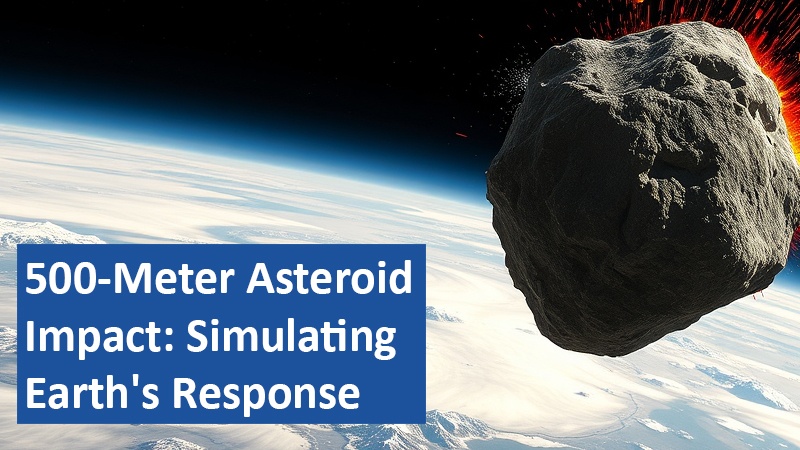
Scientists have modeled the potential consequences of a 500-meter asteroid colliding with Earth. The research delves into how such an event would impact both terrestrial and marine ecosystems. Simulations offer a glimpse into the potential climate changes and biological responses following the impact.
######################################################
Now exclusively try Amazon Prime and Prime Video free for 30 days!
####################################################
Dust Veil and Climate Shift
An asteroid strike could eject between 100 and 400 million tons of dust into the atmosphere, triggering a significant climate shift. This massive dust cloud would block sunlight, causing a temporary “impact winter.” Global temperatures could plummet by approximately 7.2 degrees Fahrenheit, disrupting established weather patterns. Rainfall would also decrease, impacting agricultural yields.
Devastation of Plant Life
The reduction in sunlight caused by the dust cloud would severely impact plant growth. Photosynthesis on land and in the oceans could be significantly reduced, potentially by up to 30 percent. This sudden decrease in primary production would disrupt the food chain, affecting both terrestrial and marine ecosystems, leading to potential resource scarcity.
Oceanic Iron Fertilization
The dust released by the asteroid impact would contain a large amount of iron. This iron would act as a fertilizer for ocean plankton, potentially leading to rapid algae blooms. Although initially, this may sound like a positive development, the long-term effects could be more complex.
Algae Blooms and Marine Ecosystems
Certain types of algae, particularly diatoms, would benefit greatly from the increased iron levels. Diatoms would thrive, providing a food source for zooplankton, which form the base of the marine food web. However, the ecological consequences of such a large-scale fertilization event remain uncertain, warranting further investigation to avoid potential negative effects on existing marine life.
Understanding the consequences of an asteroid impact is essential for planetary defense. Further research is needed to model how these environmental changes would affect human populations and global food security. These simulations can help us prepare for the unthinkable.
How can we better prepare for the complex ecological consequences of an asteroid impact, and what innovative solutions can you envision for ensuring food security in the face of a global environmental crisis?
Based on content from https://www.forschung-und-wissen.de and own research.